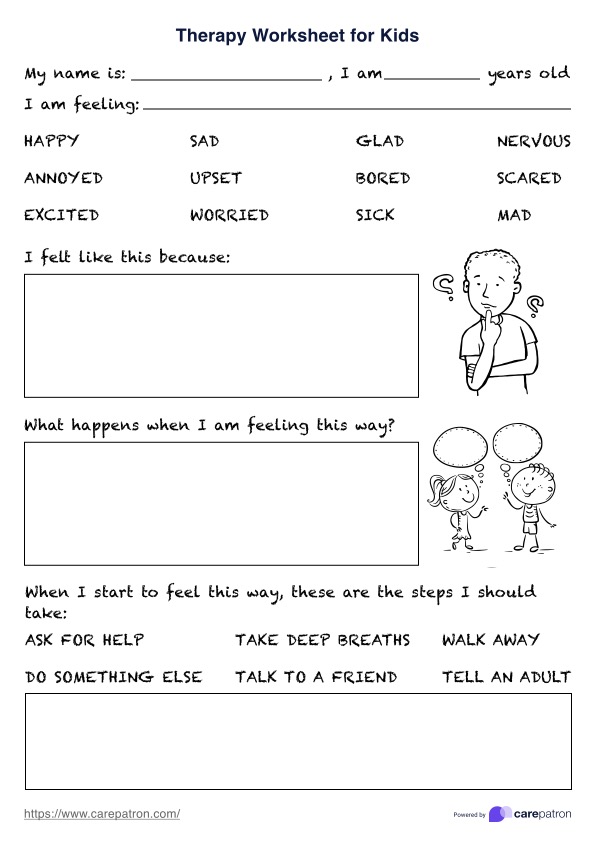Yes, the child can draw on the worksheets if they choose to. Some children are better with pictures than with words, and if this is their preferred method of communication, then absolutely feel free to encourage the child to draw. So long as you are drawing valuable insight, you can better understand the child's state of mind.

Therapy Worksheets For Kids
Explore our therapy worksheets for kids to support emotional and mental well-being. These resources aim to help children develop healthy coping skills and improve communication for positive habits and behaviors.
Therapy Worksheets For Kids Template
Commonly asked questions
It is recommended that the caregiver help their child complete the worksheet; however, they should not complete it for the child. The caregiver should not have any input as to what goes on the worksheet besides transcribing what the child is saying. There are other opportunities during appointments for the caregiver to express their perspective.
This worksheet is mostly beneficial for children under the age of 12, with adolescent worksheets being better suited for teenagers. However, of course, this is not an exclusive rule, and if you feel that this worksheet will benefit your teenage clients, feel free to incorporate it.
EHR and practice management software
Get started for free
*No credit card required
Free
$0/usd
Unlimited clients
Telehealth
1GB of storage
Client portal text
Automated billing and online payments











